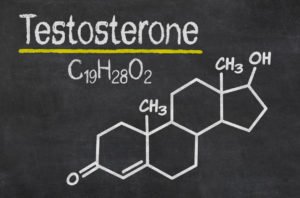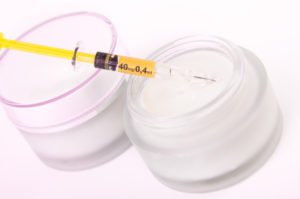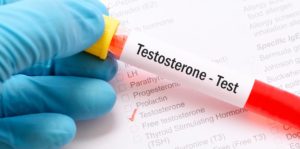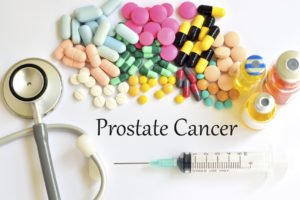
Do not avoid testosterone therapy because of misinformation about the risks!
More and more men are becoming aware of the issues relating to low testosterone or “Low-T.” As men become better informed, more of them are also reaping the benefits of testosterone therapy.
However, despite this, myths and misconceptions about the benefits versus the risks of testosterone therapy persist. One such myth that just refuses to die, regardless of a wealth of information to the contrary, is that testosterone therapy increases the risk of prostate cancer.
This idea which unfortunately has been supported by a lot of traditional doctors, is largely based on a very old study done by a Dr. Charles Huggins in the 1940s.
Huggins’ research found that in a small group of men who already had advanced prostate cancer, castration –or the total removal of their ability to produce testosterone – slowed the progression of the disease. He also found that giving testosterone, again to men that already had prostate cancer, increased the spread of the disease.
This observation lead to “androgen deprivation therapy” (ADT) as the “standard of care,” in men with prostate cancer for over 70 years. This, despite the fact that there has been very little clinical evidence since, to back up Dr. Huggins’ research.
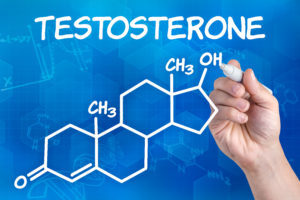 It is important to point out two things about Dr. Huggins’ and subsequent research that support ADT. One, is that his research is very old, so old that it predates more modern investigative techniques. And more importantly, his results, even if they proved to be accurate by more modern methods, only applied to men who already had prostate cancer. For such men, decreasing exposure to testosterone, may indeed help control the spread of their disease, since prostate tumors do “feed” on testosterone.
It is important to point out two things about Dr. Huggins’ and subsequent research that support ADT. One, is that his research is very old, so old that it predates more modern investigative techniques. And more importantly, his results, even if they proved to be accurate by more modern methods, only applied to men who already had prostate cancer. For such men, decreasing exposure to testosterone, may indeed help control the spread of their disease, since prostate tumors do “feed” on testosterone.
However, and this is very important, there has never, ever been one study to conclude that testosterone therapy in otherwise healthy males could “cause” prostate cancer.
In fact, in 2015, researchers published the results of a five year study observing many thousands of men in which they concluded, “Our findings suggest that the incidence of prostate cancer in patients on T-therapy was not greater than in the general population. To date, there is no convincing evidence that T-therapy is a risk factor for Prostate Cancer. Thus, fears that Testosterone Replacement Therapy causes Prostate Cancer may not be justified. In fact, the incidence of prostate cancer in the testosterone treated men was far less than that detected in general screening trials.”
My colleague, Abraham Morgentaler, MD, FACS, who wrote the book Testosterone for Life, recounts in that book that low testosterone actually may increase your risk of developing prostate cancer!
Testosterone Therapy
As the name implies, Testosterone Replacement Therapy, or T-therapy, is designed to replace what time and aging takes away.
Testosterone therapy can be given to you in a number of ways, including: hormone replacement pellets, injections, skin-patches, creams, lozenges, or any combination thereof. You and your doctor will decide together which delivery method is best for your needs and lifestyle.
For a free consultation, call (305) 682-1818

Do I Have Low Testosterone?
When it comes to the production of testosterone, most men hit their peak around the age of 17. Levels will hover pretty close to that maximum through your 20s, and then slowly start to drop-off in the 30s and 40s. By the time you are in your 80s, you can expect that your testosterone level will be as much as 50% less than what it was when you were in your 20s.
Some guys can handle declining testosterone very well, and the drop in production does not impact their lives too greatly. But for most men, as you hit your 50s, 60s and older, you may start to feel the impact of Low-T. It may not be noticeable at first, you may think feeling a little low, or more tired, or depressed, is just “getting older.” But in reality, what you are experiencing could be low testosterone.
Symptoms of Low-T include:

- Tiredness
- An overall sense of loss of drive, or vitality
- Mood swings
- Erectile dysfunction and other sexual issues
- Loss of energy
- Loss of muscle tone and increased belly fat
- Memory and other cognitive issues
If you are a man over 40, and you are experiencing any of these, you may have low testosterone. However, the only way to truly determine if you have an imbalance of one or more hormones related to your vitality, is with proper diagnosis and analysis.
The most accurate way to evaluate your hormone levels is with a blood test. Although saliva swab tests are used by some healthcare providers, blood tests provide a much more accurate result, and are the best way to determine whether Testosterone Therapy is medically indicated.
Once your blood is drawn, sophisticated laboratory testing is then used to accurately determine whether your hormone levels are normal or have become deficient.
Remember, what is normal for you, may be different for someone else, and that is why we use the latest in diagnostic tools, and our years of expert analysis to determine the course of action that is most appropriate for your individual needs.
Only then will we be able to asses if testosterone therapy, or some combination of other optimal aging therapies, is right for you.
Call or text (305) 682-1818 or complete a Free Consultation Form
